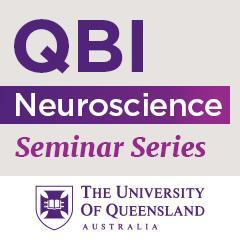Professor Yulong Li, China : "Spying on neuromodulation by constructing new genetically-encoded fluorescent sensors"

Speaker:
Professor Yulong Li
Peking University/McGovern Institute for Brain Research
Beijing, China
Title: "Spying on neuromodulation by constructing new genetically-encoded fluorescent sensors"
Abstract:
Diverse neuromodulators in the brain, such as acetylcholine, monoamines, lipids and neuropeptides, play important roles in a plethora of physiological processes including reward, movement, attention, sleep, learning and memory. Dysfunction of the neuromodulatory system is associated with a range of diseases, such as epilepsy, addition, neurodegenerative and psychiatric diseases. A longstanding yet largely unmet goal is to measure the dynamics of different neuromodulators reliably and specifically with high spatiotemporal resolution, particularly in behaving animals. To achieve this goal, we develop a series of genetically encoded GPCR-activation-based (GRAB) sensors for the detection of acetylcholine, dopamine, norepinephrine, adenosine, ATP, serotonin, histamine, endocannabinoids and neuropeptides, and validate the performance of these sensors in multiple preparations in vitro and in vivo. The GRAB sensor toolbox provides new insights into the dynamics and mechanism of neuromodulatory signaling both in health and disease. The GRAB strategy is now being applied to develop new sensors for other important extracellular signaling molecules.
About Neuroscience Seminars
Neuroscience seminars at the QBI play a major role in the advancement of neuroscience in the Asia-Pacific region. The primary goal of these seminars is to promote excellence in neuroscience through the exchange of ideas, establishing new collaborations and augmenting partnerships already in place.
Seminars in the QBI Auditorium on Level 7 are held on Wednesdays at 12-1pm, which are sometimes simulcast on Zoom (with approval from the speaker). We also occassionally hold seminars from international speakers via Zoom. The days and times of these seminars will vary depending on the time zone of the speaker. Please see each seminar listed below for details.



